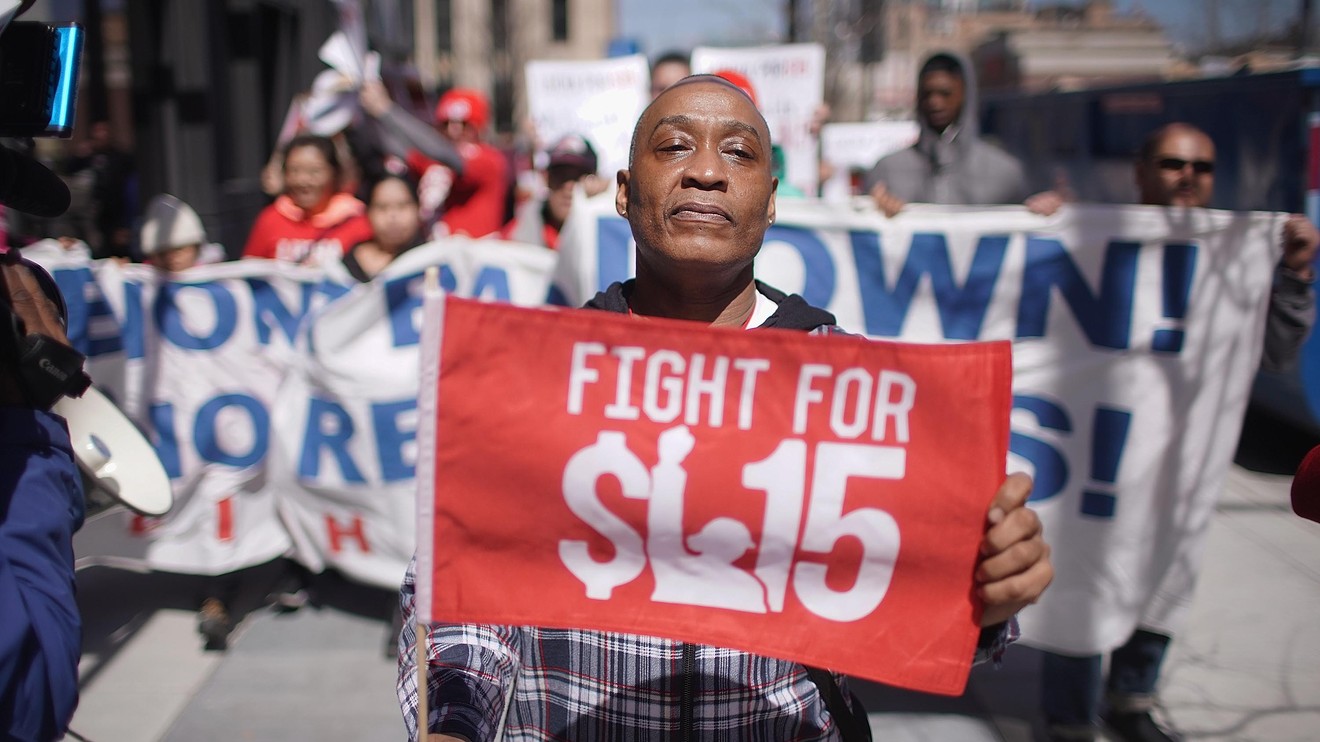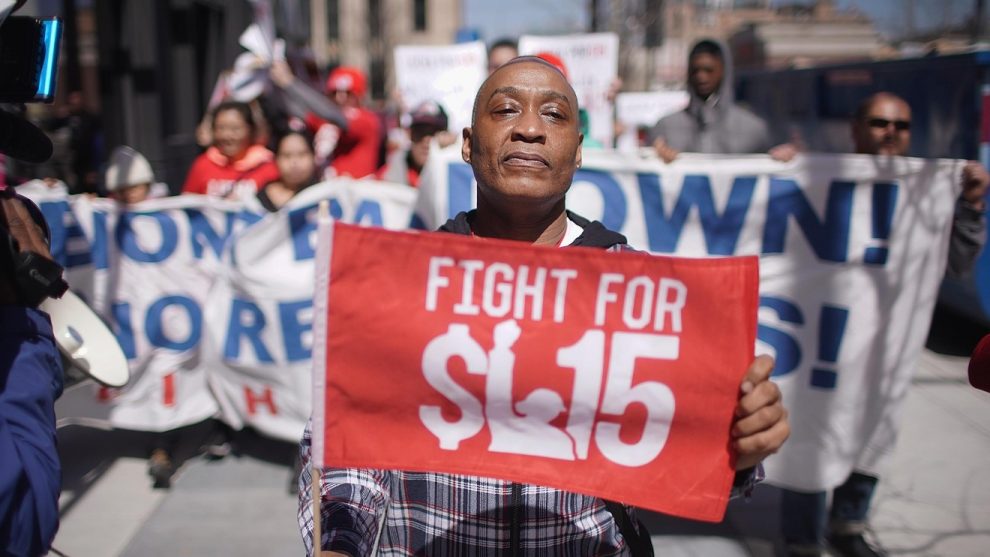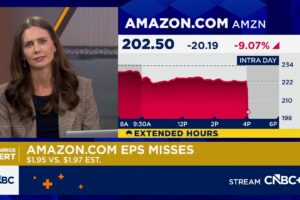
A $15 an hour minimum wage won’t slash jobs in low-income areas, according to a new study from the University of California, Berkeley, and it will also help to reduce poverty.
The study, conducted by Anna Godoey and Michael Reich, economists at UC Berkeley’s Center on Wage and Employment Dynamics, suggests that a proposal to raise the federal minimum wage to $15 an hour by 2024 would not reduce employment rates, weekly hours worked, or annual weeks worked. The study notes that $15 an hour in 2024 is roughly equivalent to $13 an hour today.
In their paper, Godoey and Reich suggested a few reasons why minimum wage increases do not necessarily lead to a loss of low-wage jobs. These include price increases in the restaurant and retail industries, which generally have a lot of minimum wage jobs, and the fact that low-wage workers who are paid more simply have more money to spend and put back into the economy.
Researchers analyzed the effects of more than 50 wage changes
The Berkeley researchers used data from the American Community Survey (ACS), administered by the U.S. Census Bureau, in their study. They said its large sample size — 3 million homes a year — made it a better tool than the Current Population Survey, which surveys just 100,000.
With the data, they studied the effects of 51 minimum wage changes in 750 counties in 45 states between 2004 and 2016. Increases in the minimum wage in “high-exposure areas” — places where many employees work minimum-wage jobs and are thus particularly affected by changes — lead to higher wages without “a corresponding reduction in employment or hours,” the study authors wrote.
Raising wages in these low-income areas also led to a decline in household and child poverty. “Our estimates suggest a 10% increase in the minimum wage would reduce household poverty rates by 0.7 to 0.9 percentage points in the highest impact areas,” Godoey said.
Another recent study showed a similar result. In February 2018, the London School of Economics released research that examined minimum wage changes in the U.S. between 1979 and 2016. That study concluded that minimum wage increases did not significantly change the number of low-wage jobs.
Democrats are pushing for a $15 federal minimum wage
Congressional Democrats introduced the proposal, called the Raise the Wage Act, in January at a press conference with House Speaker Nancy Pelosi, of California, and Sen. Bernie Sanders.
“We are living today in an American economy which is doing very well for the people on top, not so well for working families,” Sanders, an independent from Vermont who is vying for the 2020 Democratic nomination, said then.
Nearly all 2020 Democratic candidates, from former vice president Joe Biden to Senator Elizabeth Warren of Massachusetts, back a $15 minimum wage.
“Companies continue to squeeze every last penny out of workers, making it harder and harder for Americans to make ends meet. It’s way past time we make a $15 minimum wage the law of the land,” Biden wrote on Twitter TWTR, +0.55% .
President Donald Trump hasn’t ruled out support for the plan, saying in June that he was “looking at” the idea of raising the hourly wage to $15.
In addition to raising the general minimum wage, the Raise the Wage Act would also eliminate the $2.13 federal minimum wage for tipped workers. The Act is likely to see a vote in the House before August. Regardless of the outcome of that vote, it’s unlikely to pass the Republican-controlled Senate.
The federal minimum wage has been $7.25 since 2009. Several states and cities have passed laws requiring $15 minimum wages, and several major companies have either raised their employees’ minimum wages or say they will in the future.
Costco COST, +0.43% upped its minimum wage to $15 in March, Target TGT, +0.30% raised its lowest pay to $13 an hour in June and says its minimum wage will hit $15 by 2020. Walmart WMT, +0.66% increased its starting pay to $11 an hour in 2018, and Amazon AMZN, +0.48% hiked its minimum wage to $15 last year as well.
Other studies have found the opposite
Conventional wisdom says otherwise, and so do business groups including the U.S. Chamber of Commerce. An increase in the minimum wage makes it more costly for an employer to hire an additional worker. Employers looking to maximize their profit will, in theory, hire fewer workers when the minimum wage rises.
“Small businesses do not have the resources to absorb such a dramatic increase in costs,” Marc Freedman, vice president of employment policy at the Chamber of Commerce, wrote.
There are studies that back this idea up. One published by the University of California, San Diego, in 2016 found that the Fair Minimum Wage Act of 2007, which raised the federal minimum wage to $7.25 from $5.15 between 2007 and 2009, had a negative effect on employment for low-skilled workers. The wage change occurred during the Great Recession, and this study compared states that already had a minimum wage at or above $7.25 to states that were affected by the new law.
A Harvard Business School study from 2018 looking at raises to the minimum wage in San Francisco found that minimum wage increases made restaurants that were rated approximately 3.5-stars on Yelp more likely to shut down. The increase did not have any significant effect on 5-star restaurants.
Republicans opposed to the Raise the Wage Act say it will put many low-wage workers out of a job.







